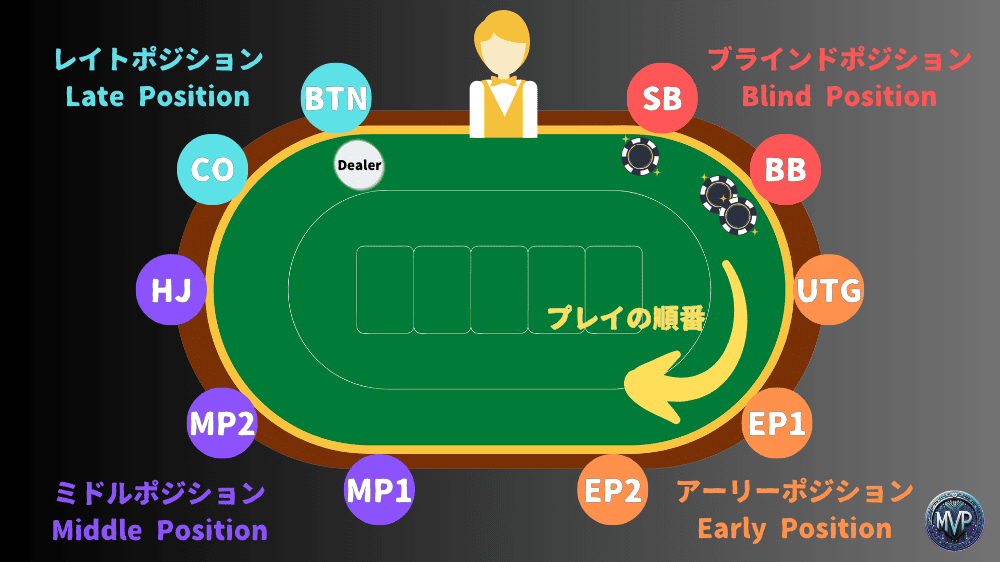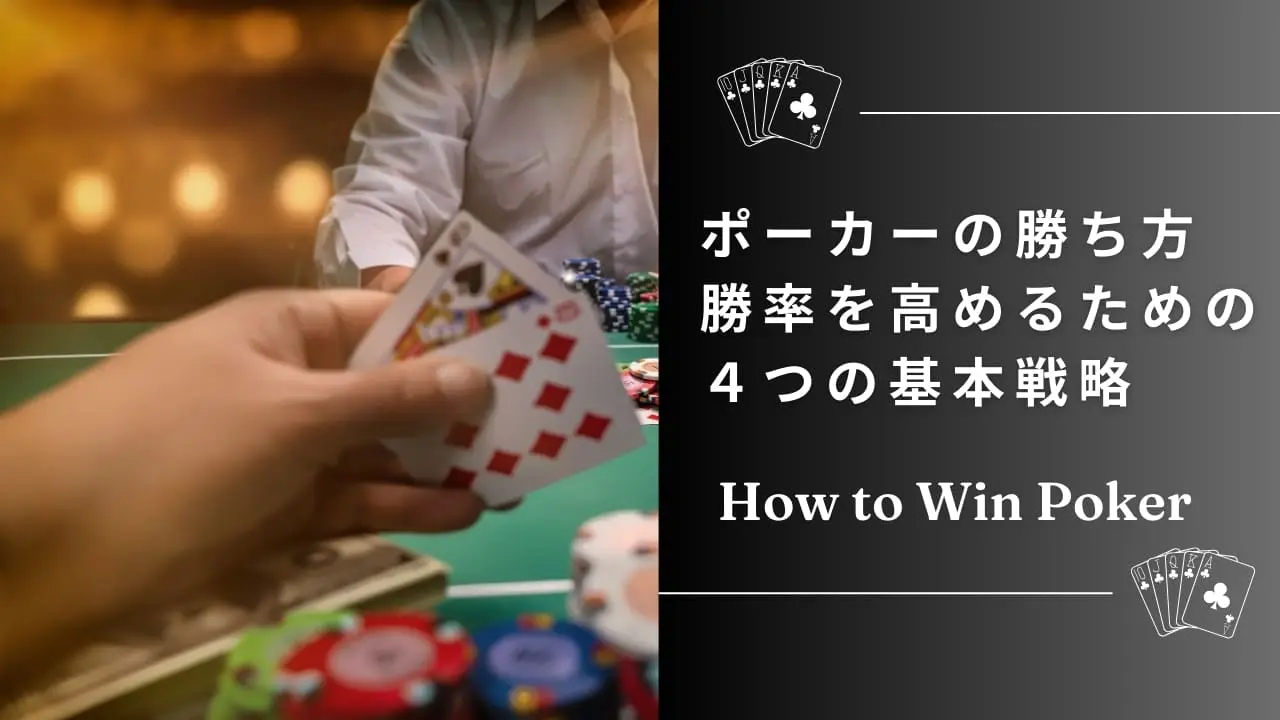Many poker beginners wonder, “How do I actually win?” but dive into games without a clear strategy. While luck plays a role, poker is ultimately a game of skill and decision-making. In this guide, we’ll explain beginner-friendly strategies and actionable tips to help you improve your win rate from day one.
Core Strategies to Win at Poker
Master Position Play
Position is one of the most important factors in poker. Late positions like the Button (BTN) and Cutoff (CO) let you act after other players, giving you valuable information before making decisions.
Beginner Tip:
Play more hands in late position and be selective in early position.
Understand Hand Ranges
Tight hand selection reduces unnecessary losses. Beginners should start with a “tight” style, only playing strong starting hands.
Examples:
- Early Position: Stick to premium hands like JJ+, AK
- Late Position: Include suited connectors like 9♠ 8♠ in your range
Control Your Bet Sizing
Bet sizing is critical. Bets that are too small may invite calls, while oversized bets can scare opponents off. Learning to size your bets correctly helps you control the pot and the action.
Beginner Tip:
Raise 2.5–3x the big blind (BB) preflop as a default sizing.
Identify Player Types
Adapting to your opponents is key.
Examples:
- Against tight-aggressive (TAG) players, play cautiously.
- Against loose-passive players, bet for value more frequently.
Advanced Techniques to Improve Your Win Rate
Use Bluffing Wisely
Bluffing is exciting, but timing is everything. A successful bluff requires good reads and understanding of your opponent’s range.
Beginner Bluffing Tips:
- Bluff when the flop includes high cards (e.g., A or K).
- Target passive players.
- Be cautious bluffing skilled or experienced opponents.
Semi-Bluff Effectively
Semi-bluffs involve betting with drawing hands that have potential to improve.
Example:
If you hold a flush or straight draw, play aggressively to gain fold equity while maintaining outs to improve.
Know Your Pot Odds and Implied Odds
Pot odds help determine if a call is mathematically justified based on your chance to hit a draw. Implied odds consider the additional value you might win if you hit your hand.
Beginner Tip:
A flush draw hits about 19% of the time. If the pot is 5x the call size, it’s typically worth calling.
Position-Based Strategy: Play Smart from Every Seat

Success in poker requires more than good cards—you must play differently based on your table position.
Early Position (UTG, UTG+1)
You act first preflop and have the least information. Play tight and avoid marginal hands.
Strategy:
- Only raise with premium hands like AA, KK, QQ, and AK.
- Avoid bluffing from this position.
- Keep your range narrow.
Example:
Hand: A♥ A♣
Action: Raise to 3BB from UTG
Middle Position (MP, HJ)
You have more information than early positions, allowing for slightly wider play.
Strategy:
- Open up your range: 88+, AQ, AJ, KQ suited.
- Pay attention to earlier actions.
- Mix in some aggression if others have folded.
Example:
Hand: J♥ X♥
Action: Open raise to 3BB if no one has raised before you.
Late Position (CO, BTN)
The most profitable seats due to maximum information.
Strategy:
- Expand your range: even weak hands like A♥ 5♣ or K♦ 7♦ can be playable.
- Steal the blinds aggressively.
- Use your position to make informed postflop decisions.
Example:
Hand: Q♣ 9♥
Action: Open raise from CO to 3BB if everyone folds
Common Mistakes Beginners Make (And How to Fix Them)
Playing Weak Hands
Mistake: Calling with hands like 7-2 offsuit or J-5 suited often leads to losing chips unnecessarily.
Fixes:
- Study and use starting hand charts.
- Respect your position and tighten up in early seats.
- Avoid loose, speculative calls.
Ignoring Position
Mistake: Playing weak hands early puts you at risk of facing stronger holdings from players acting after you.
Fixes:
- Tailor your hand selection by position:
- Early: Stick to AA, KK, QQ, AK
- Middle: Include 99+, AQ, KQ suited
- Late: Widen range and steal blinds
- Early: Stick to AA, KK, QQ, AK
- Always be aware of remaining players still to act.
Bluffing Too Much
Mistake: Excessive bluffing leads to getting called more often.
Fixes:
- Only bluff when your opponent likely has a weak hand.
- Consider board texture: don’t bluff on scary boards unless you represent a strong hand.
- Favor semi-bluffs: use draws that can improve if called.
- Avoid bluffing “calling stations” who never fold.
Conclusion
Winning at poker comes down to more than luck—it requires a strategic mindset. By mastering position, selecting hands wisely, adjusting to your opponents, and using the techniques outlined in this guide, you’ll start seeing consistent improvement in your game. Make these fundamentals part of your playbook and elevate your poker performance starting today.


